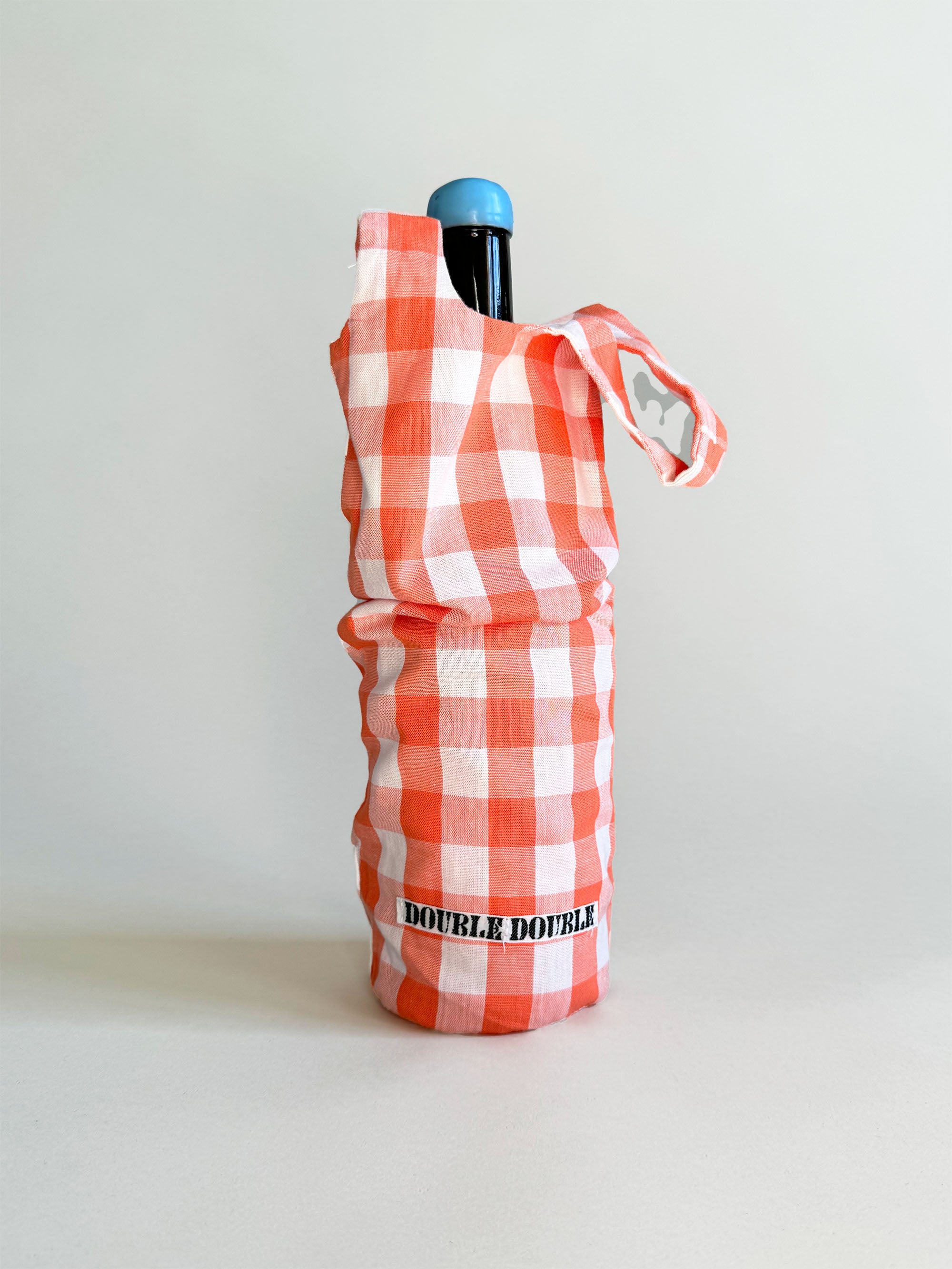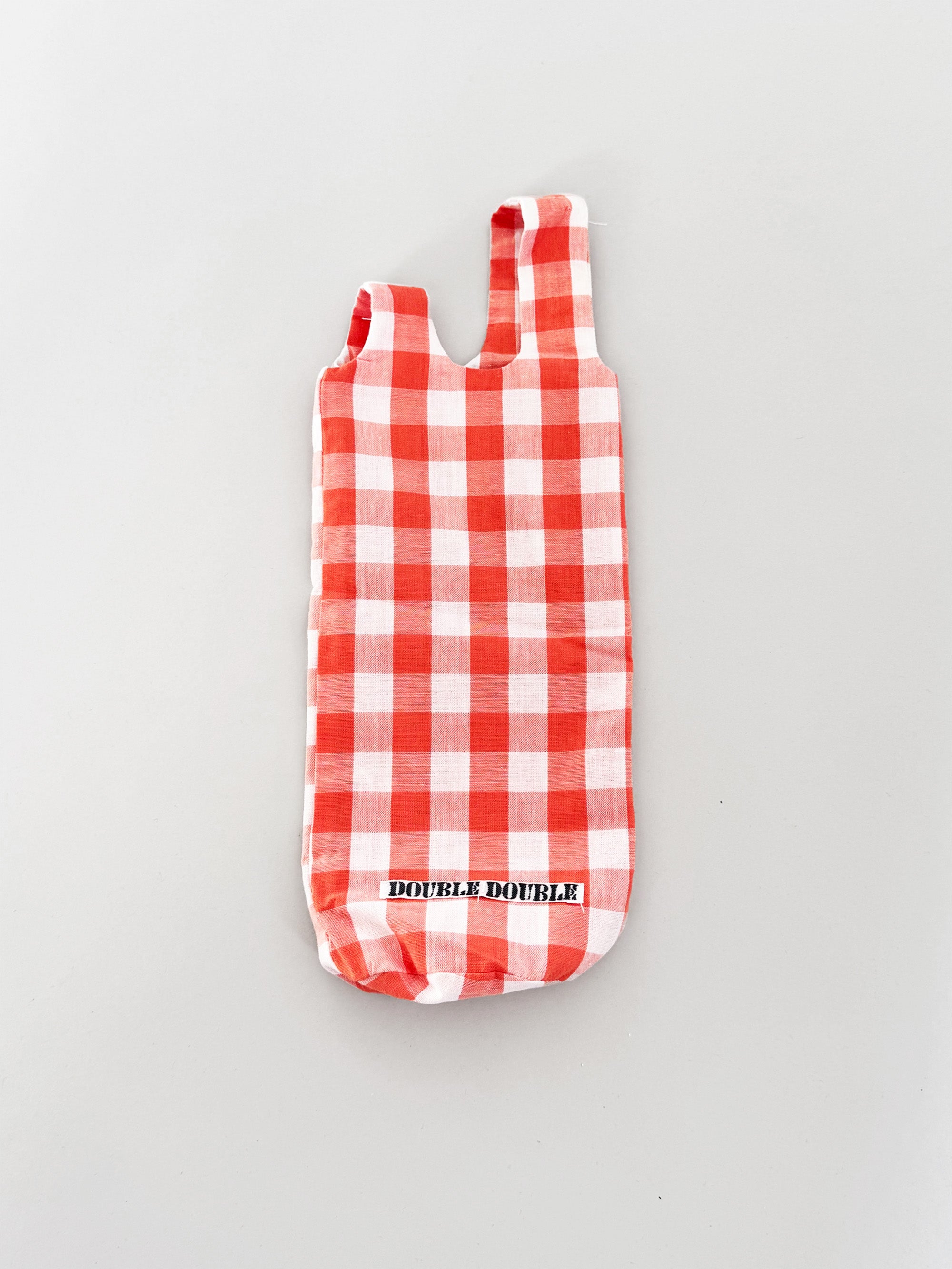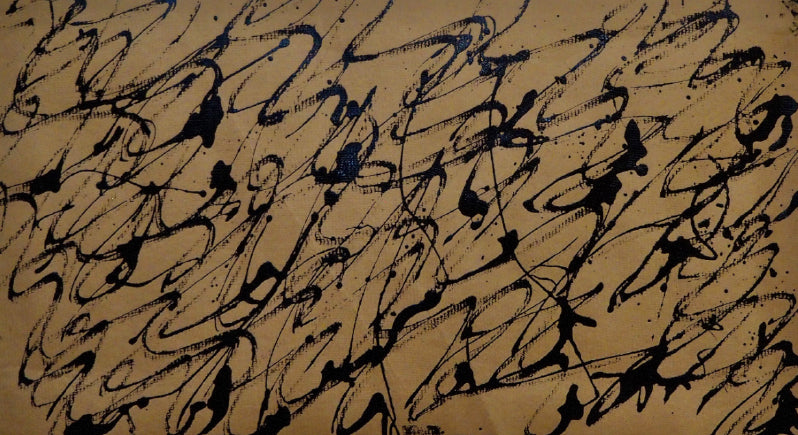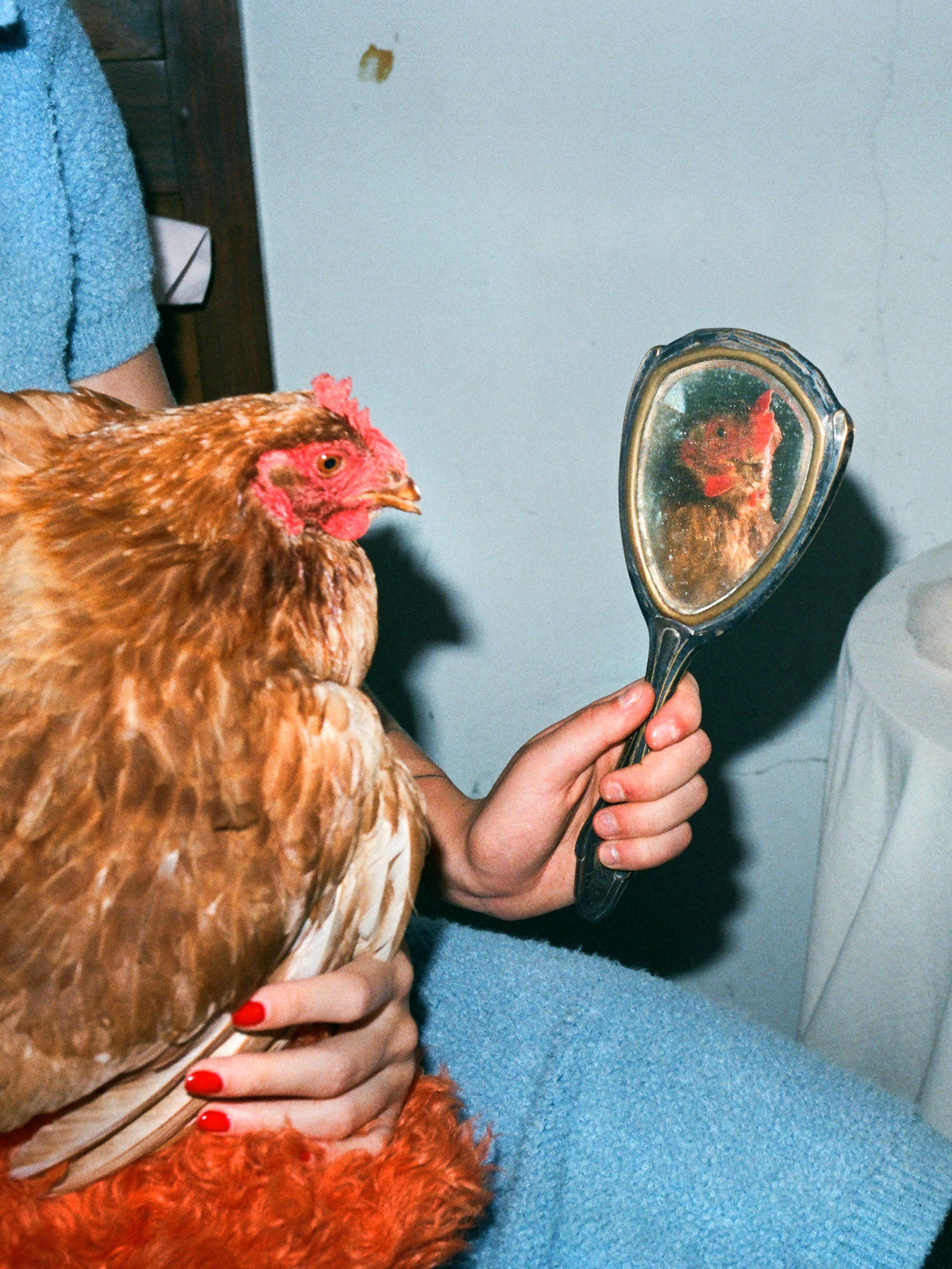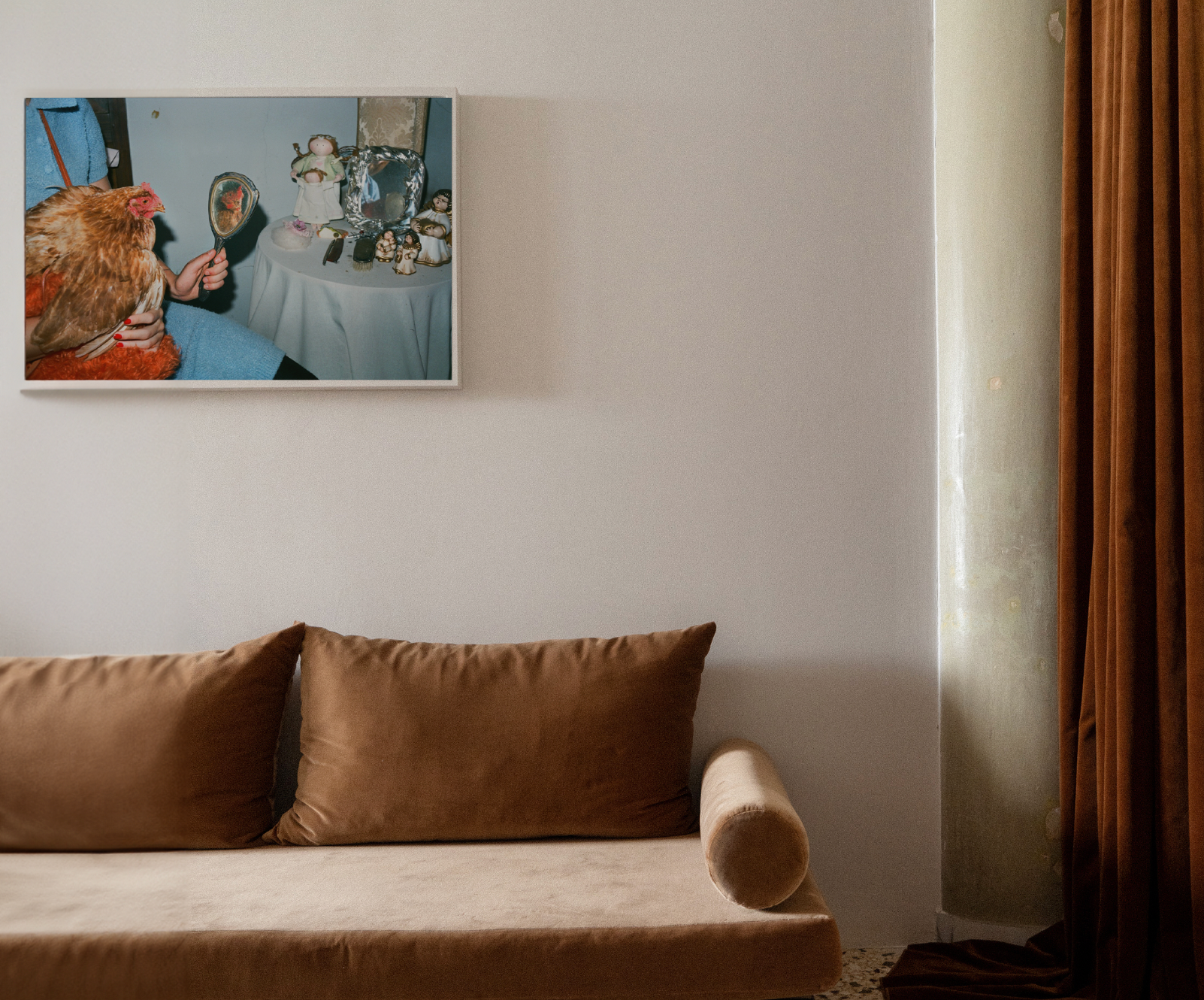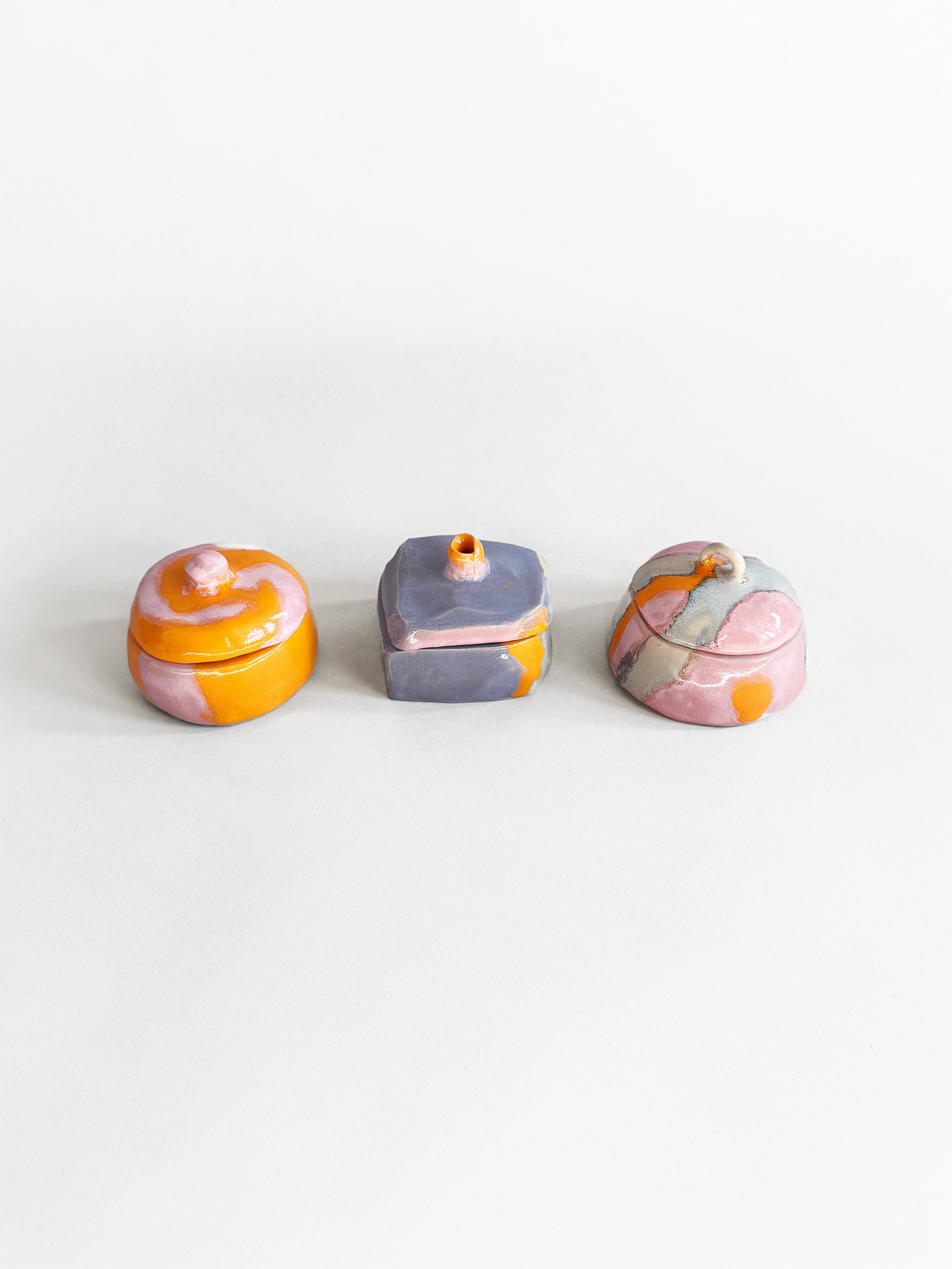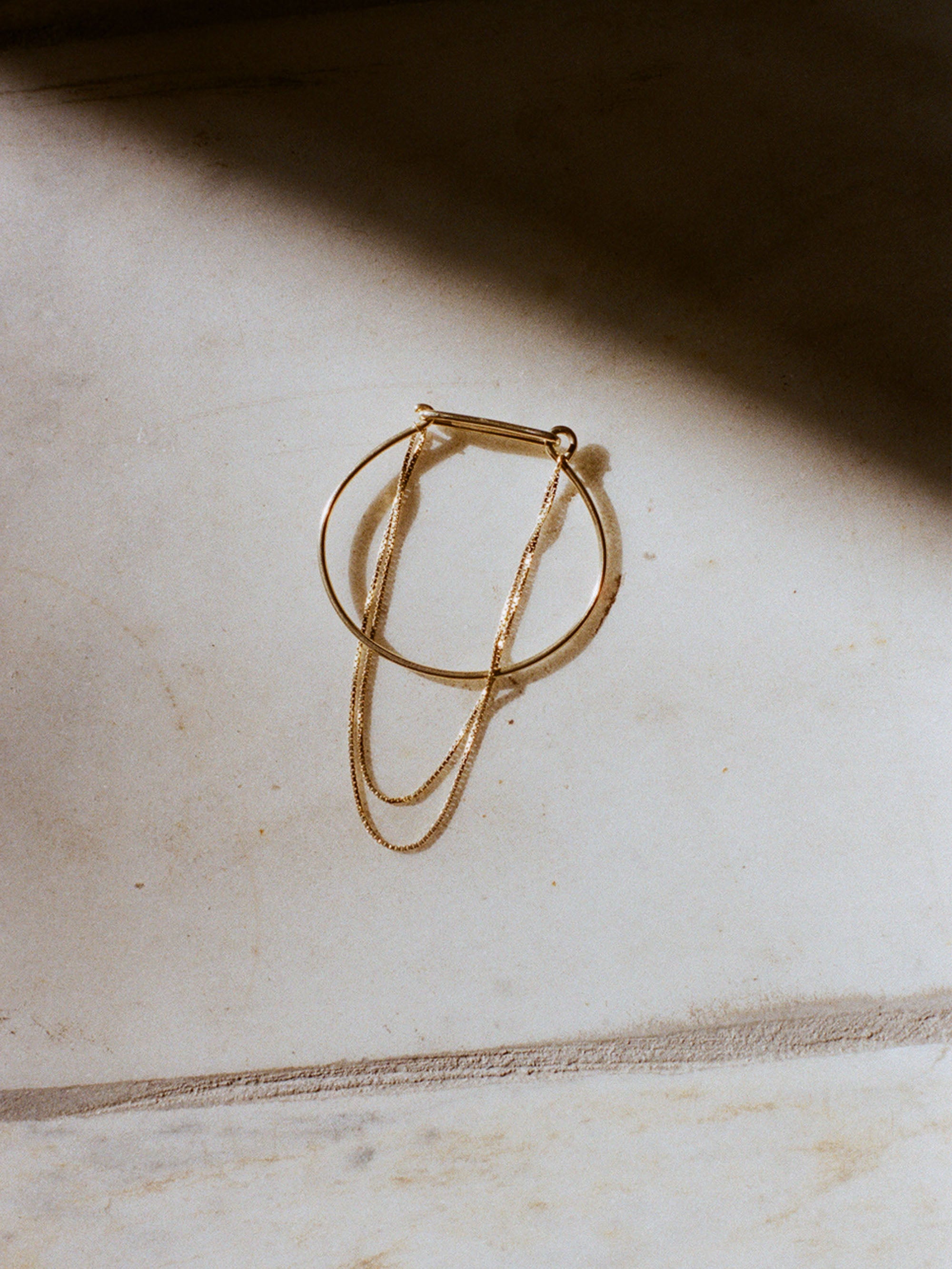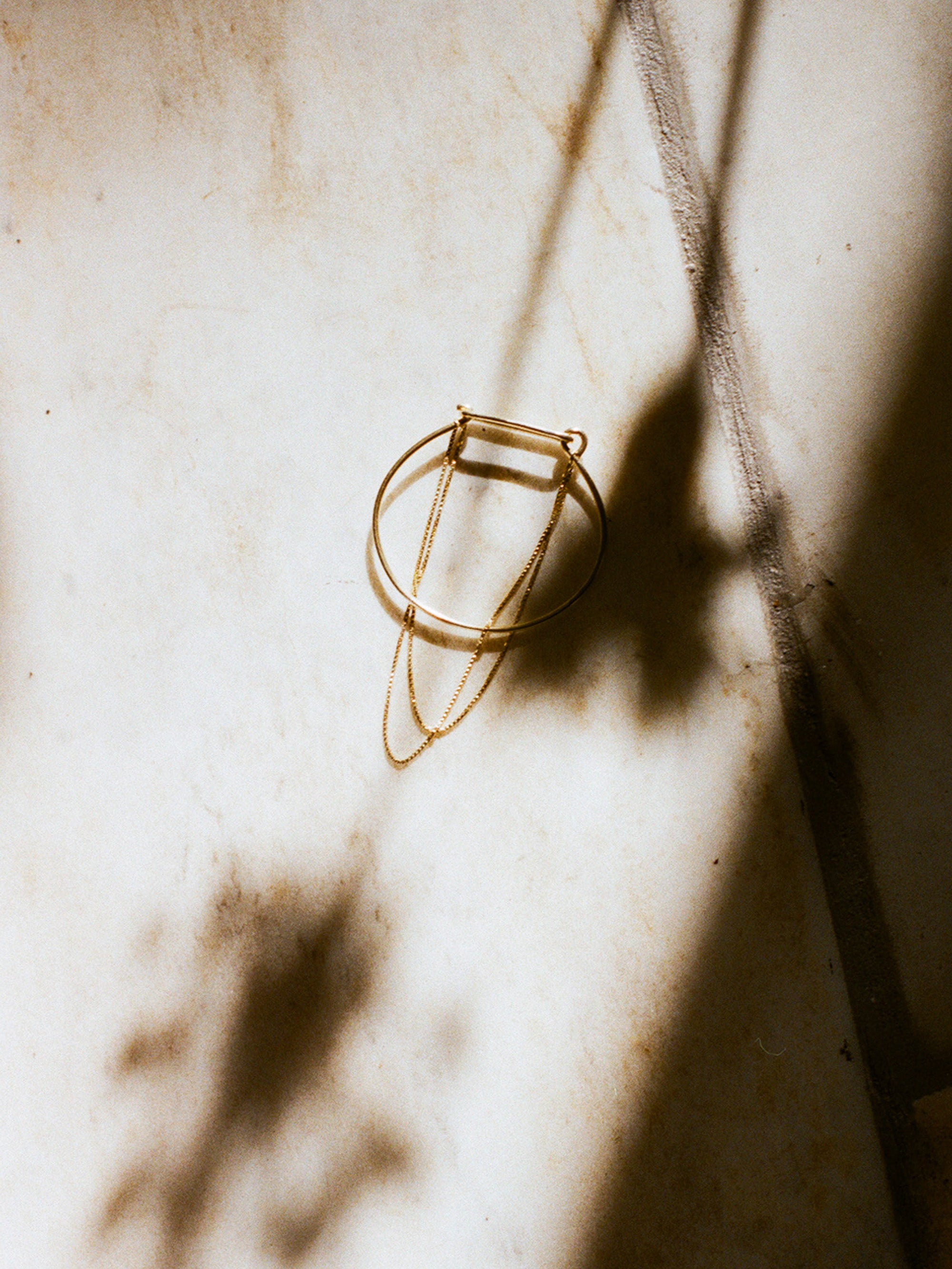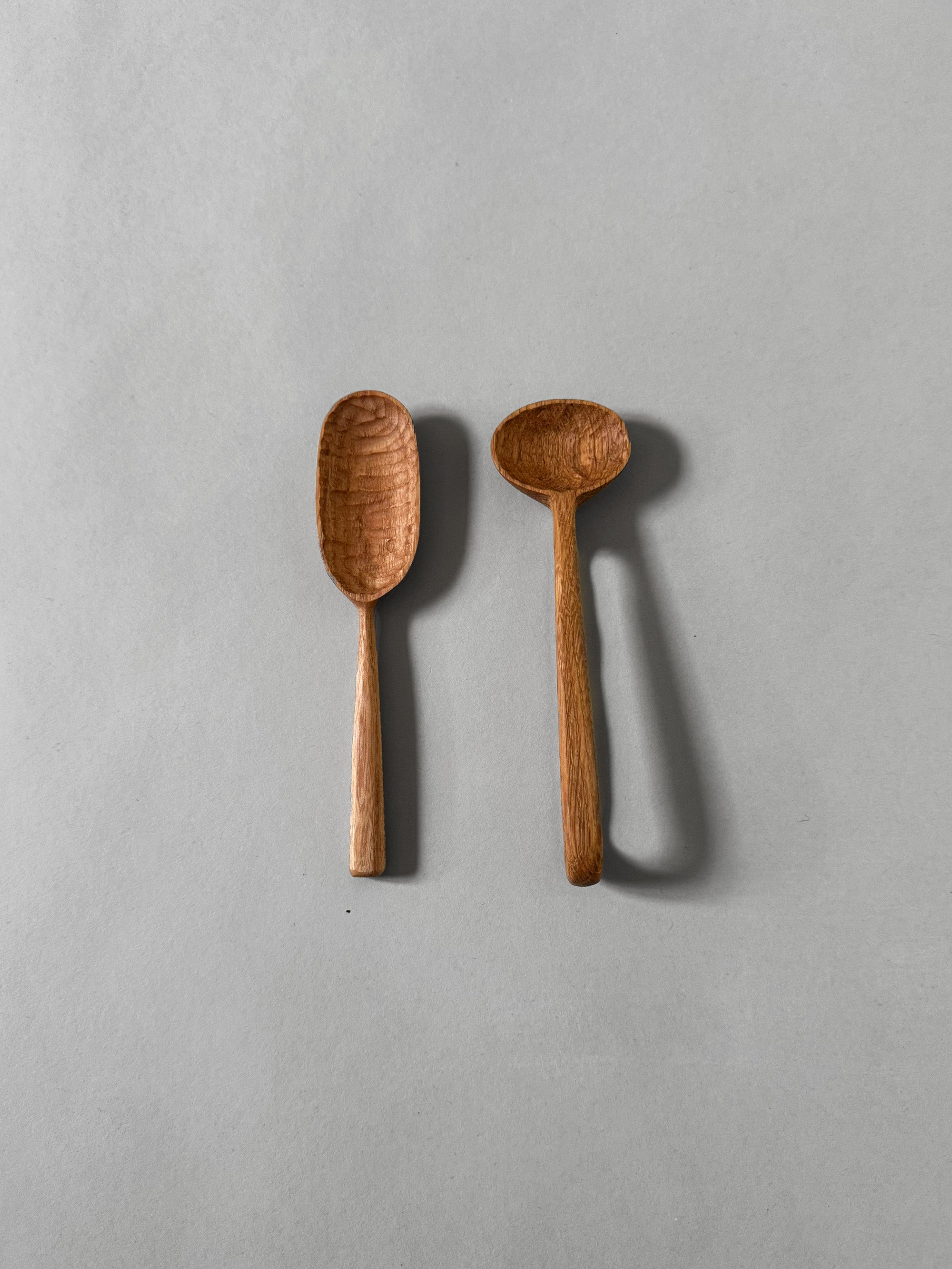
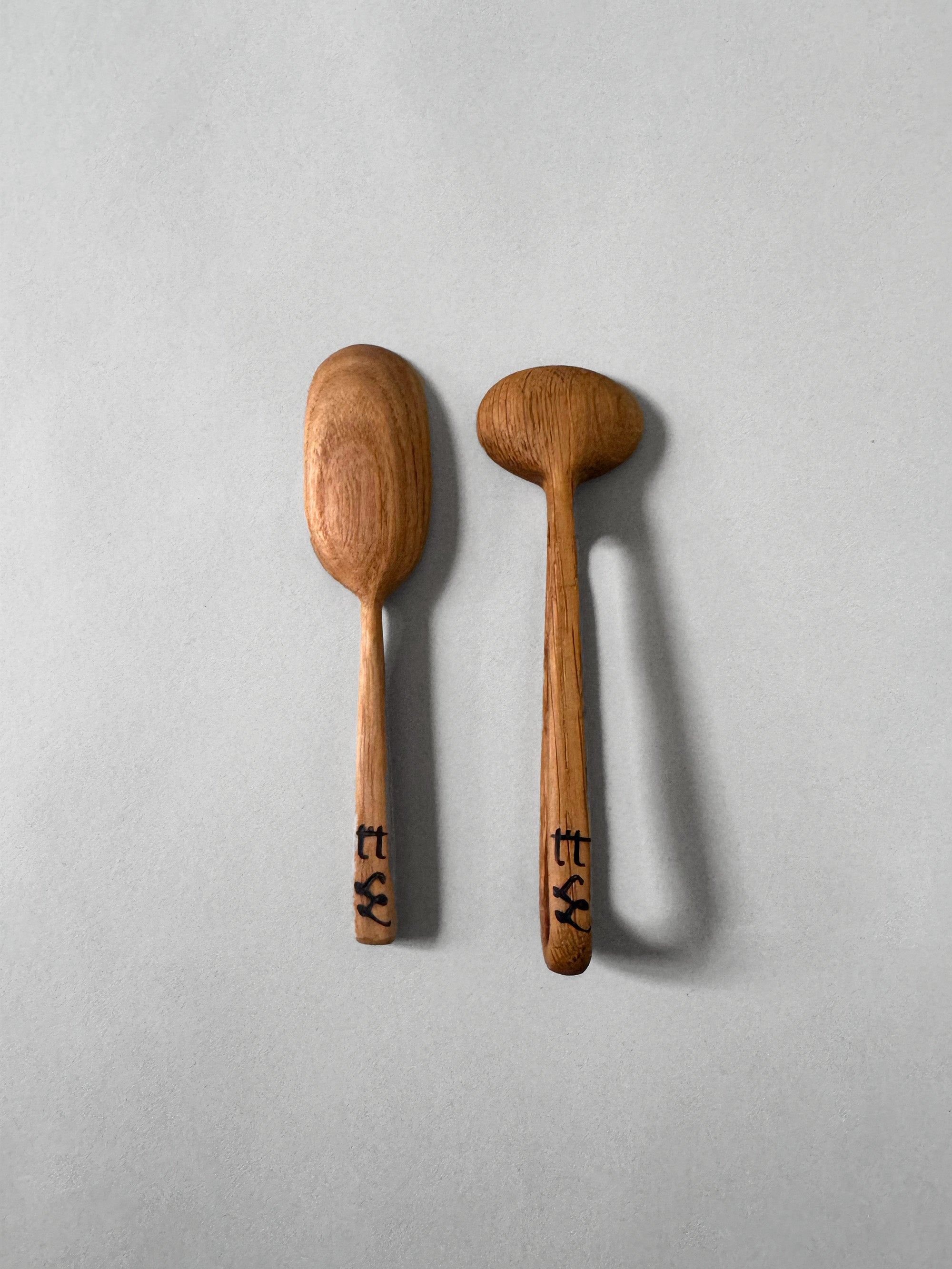
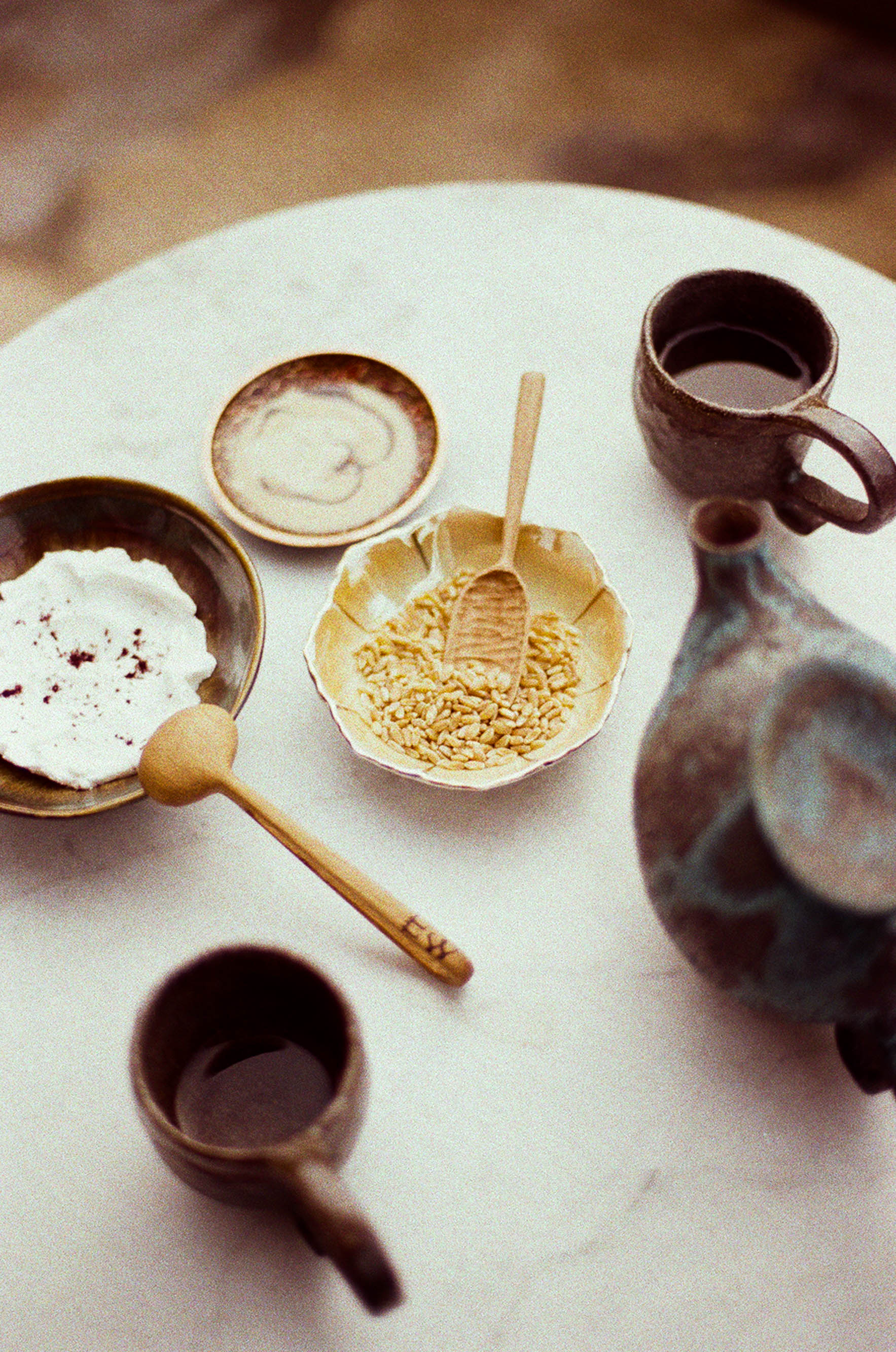

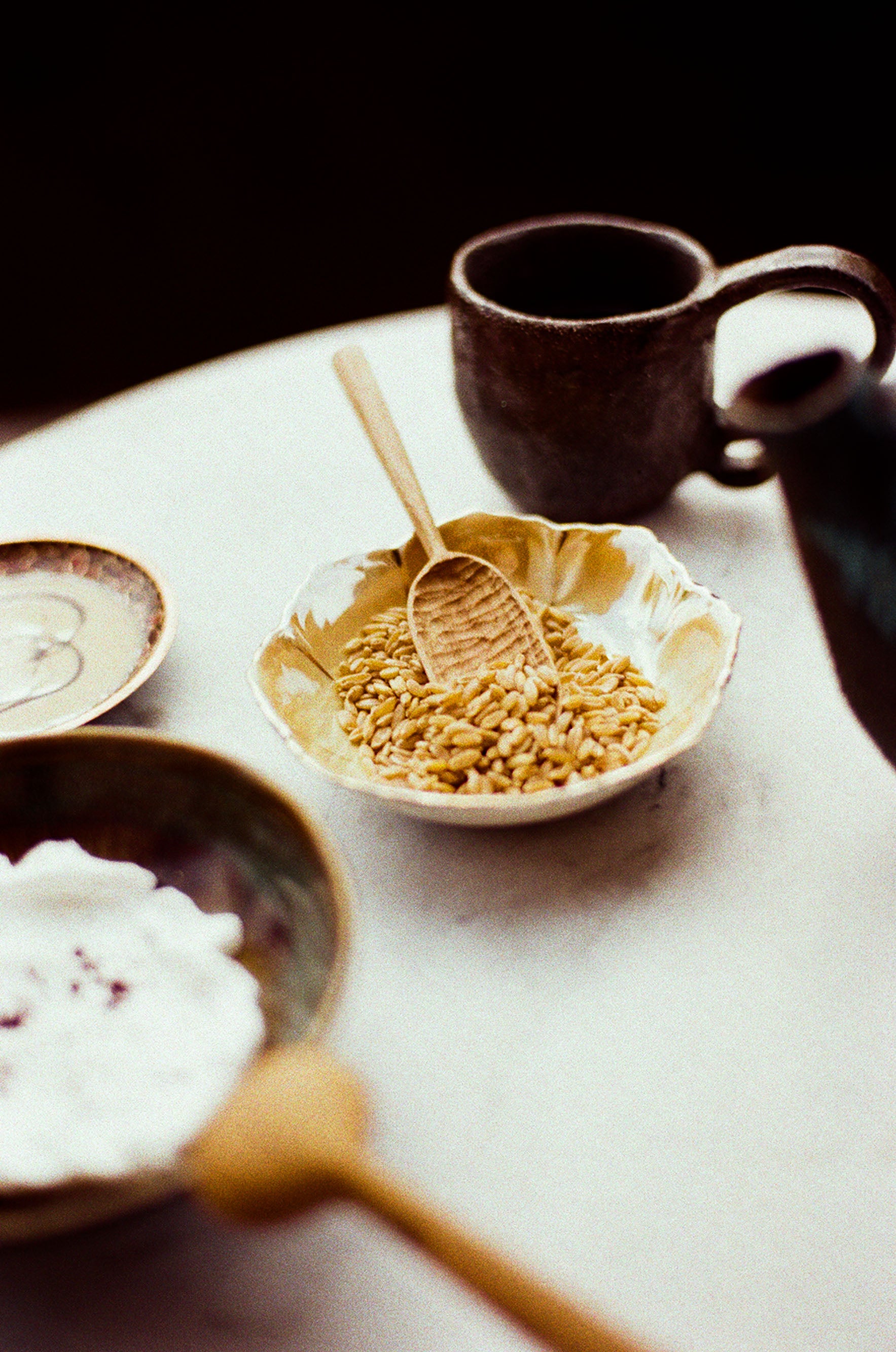
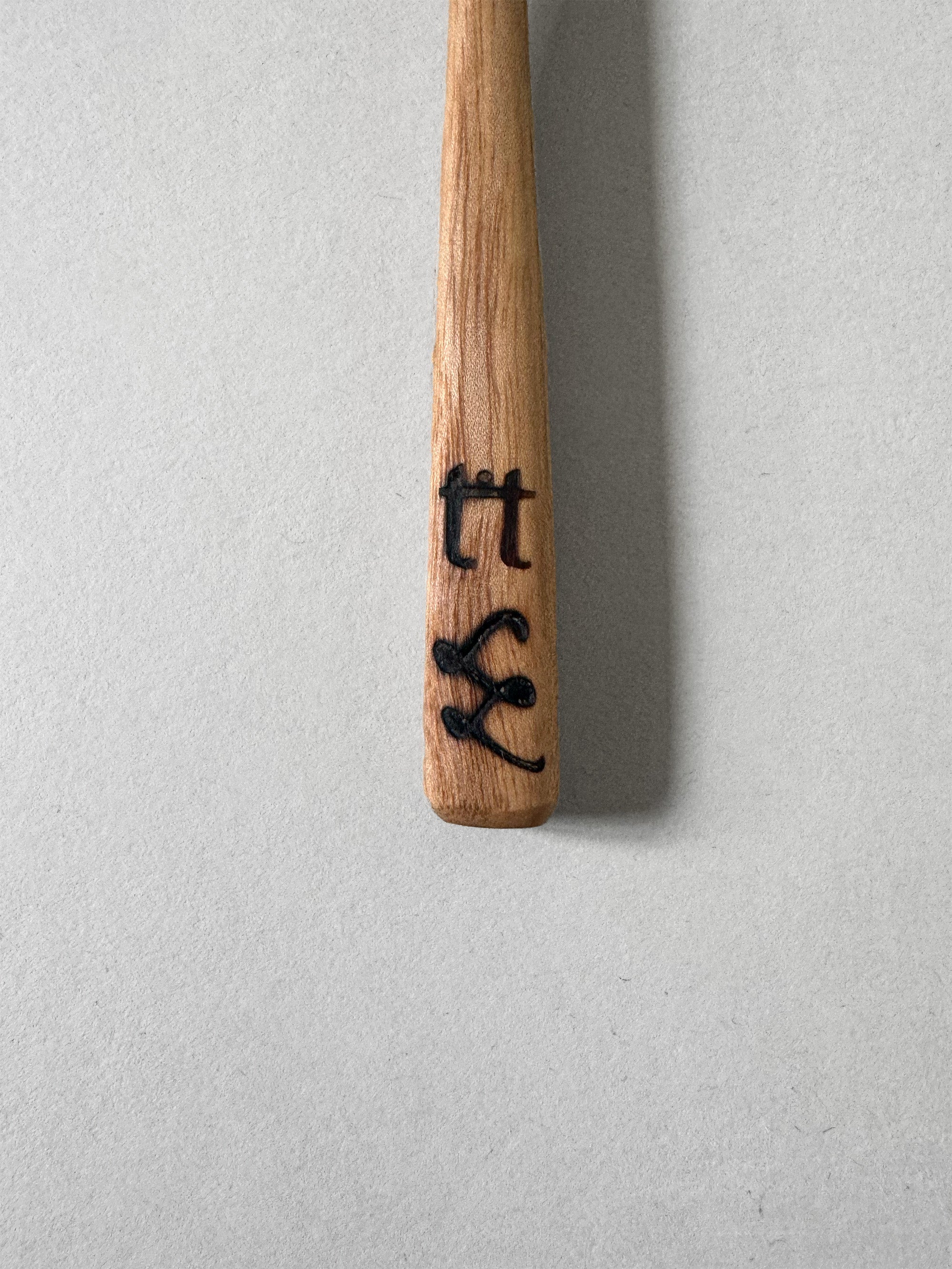
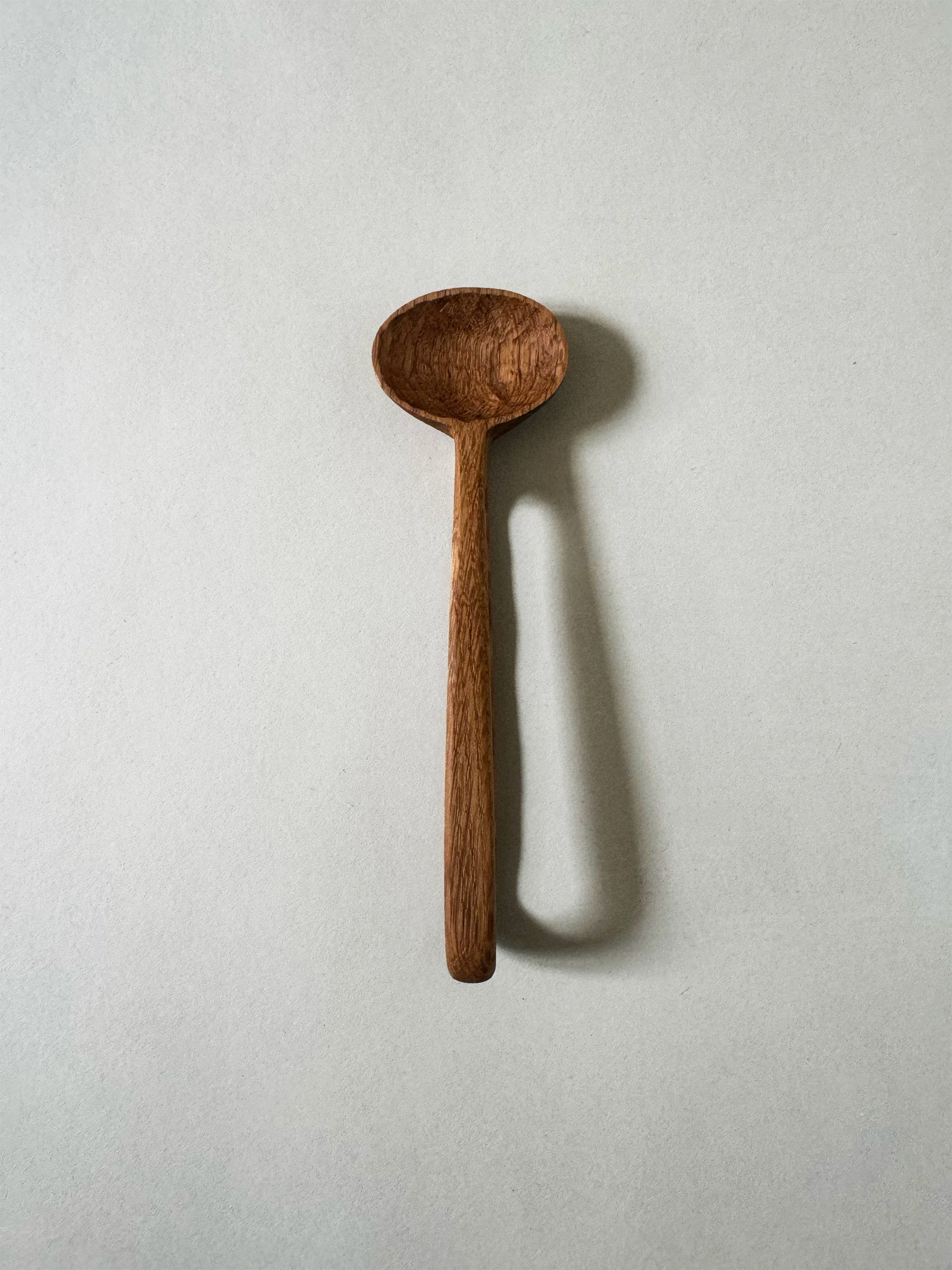
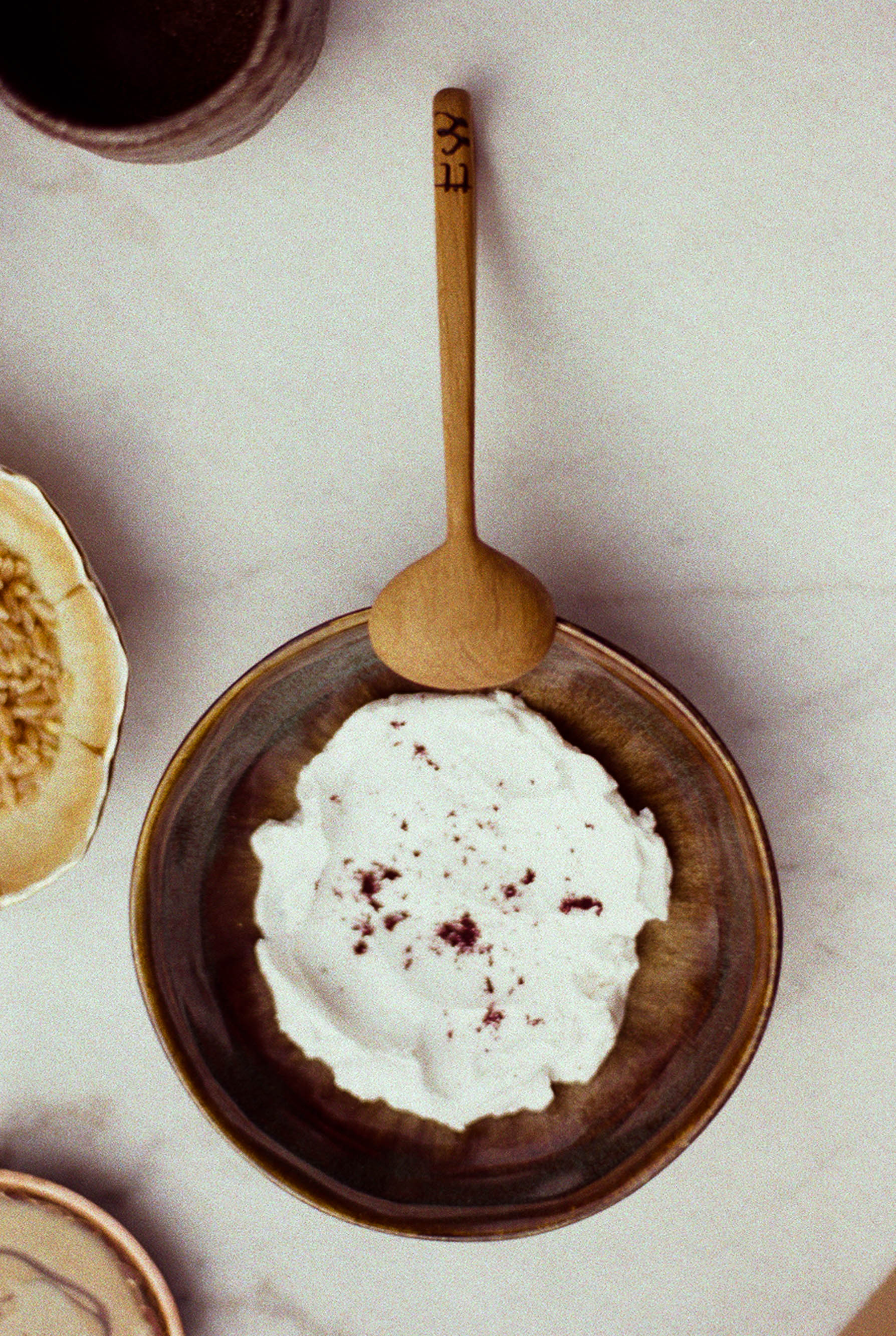
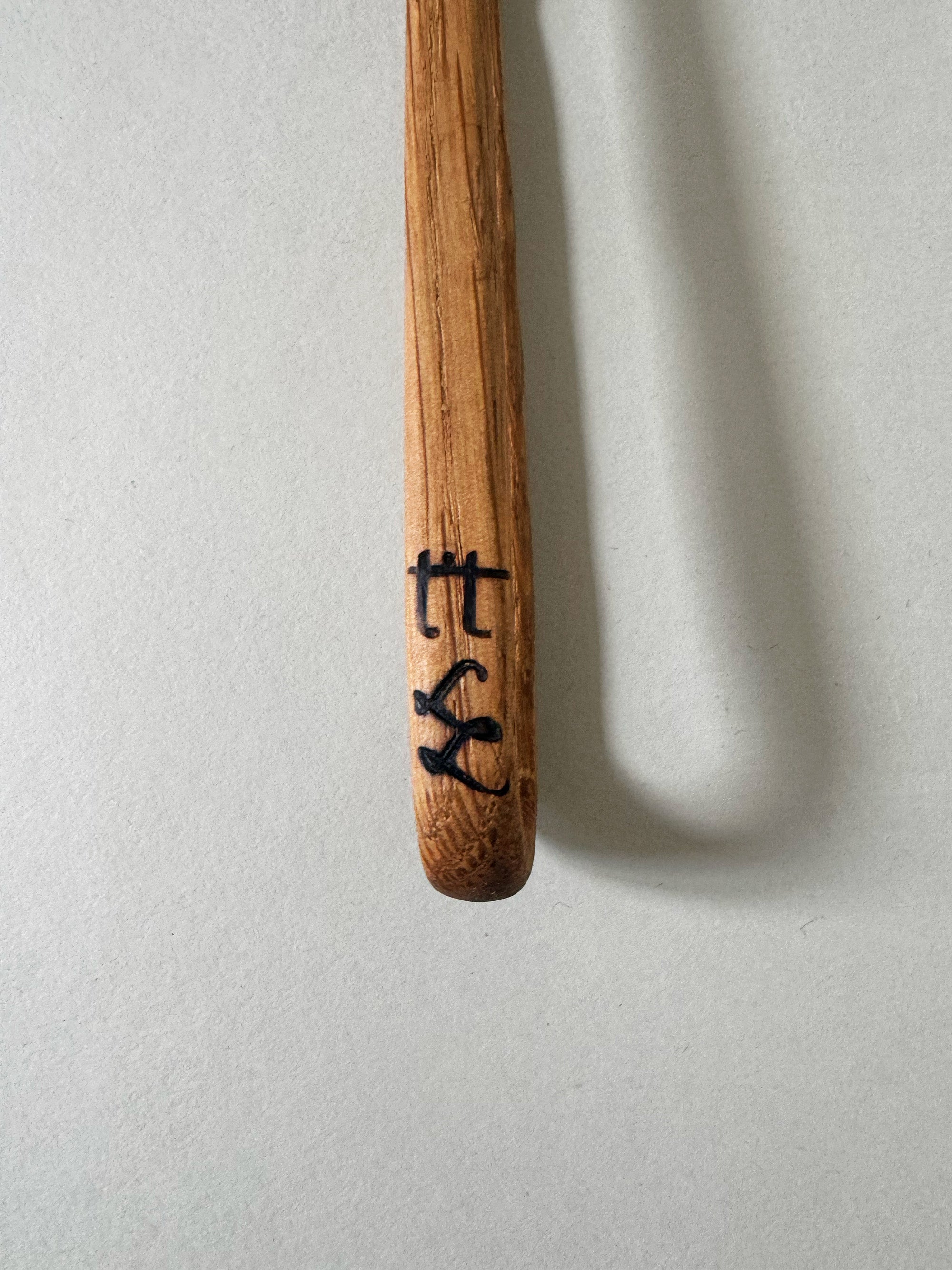
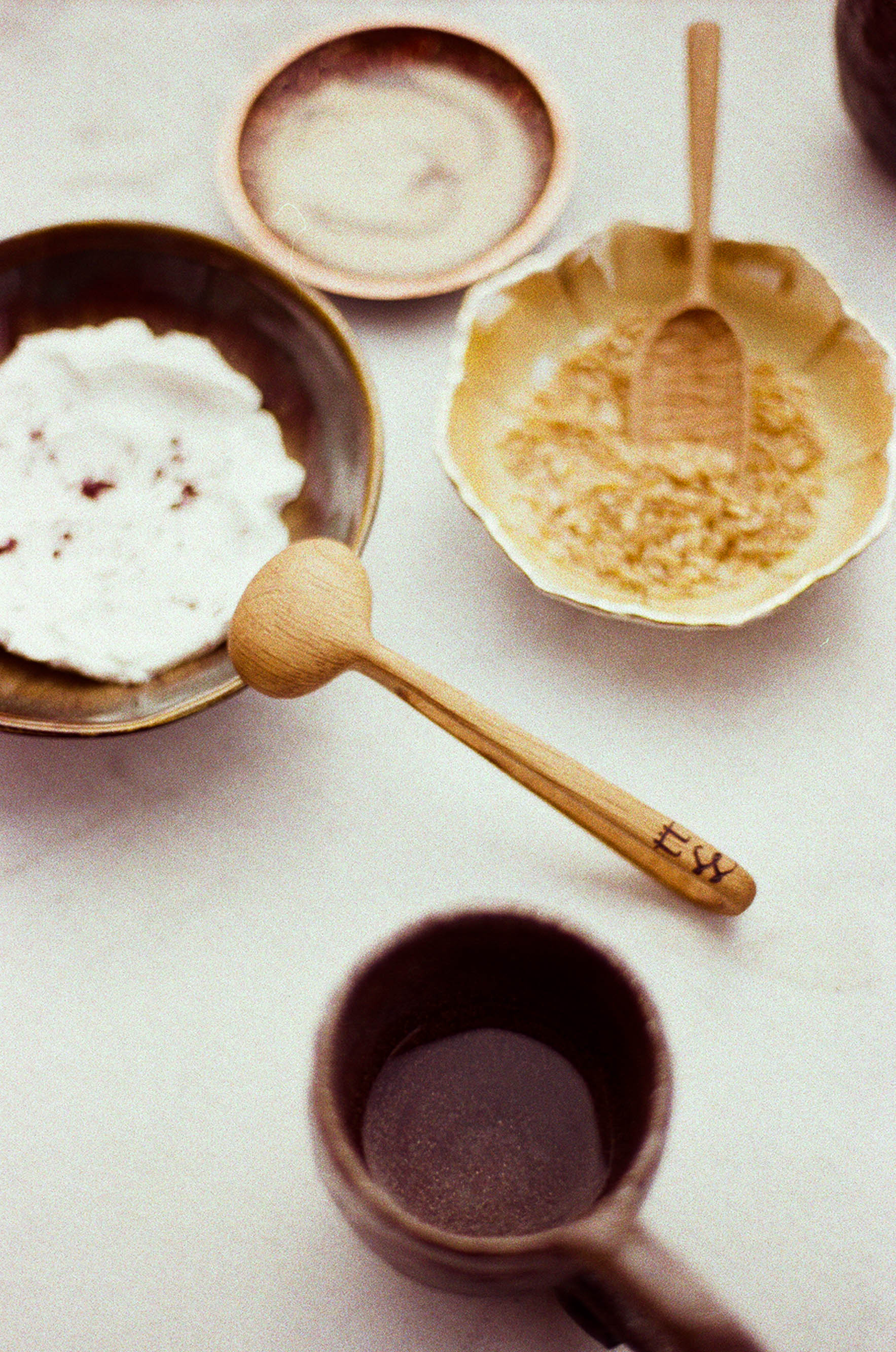
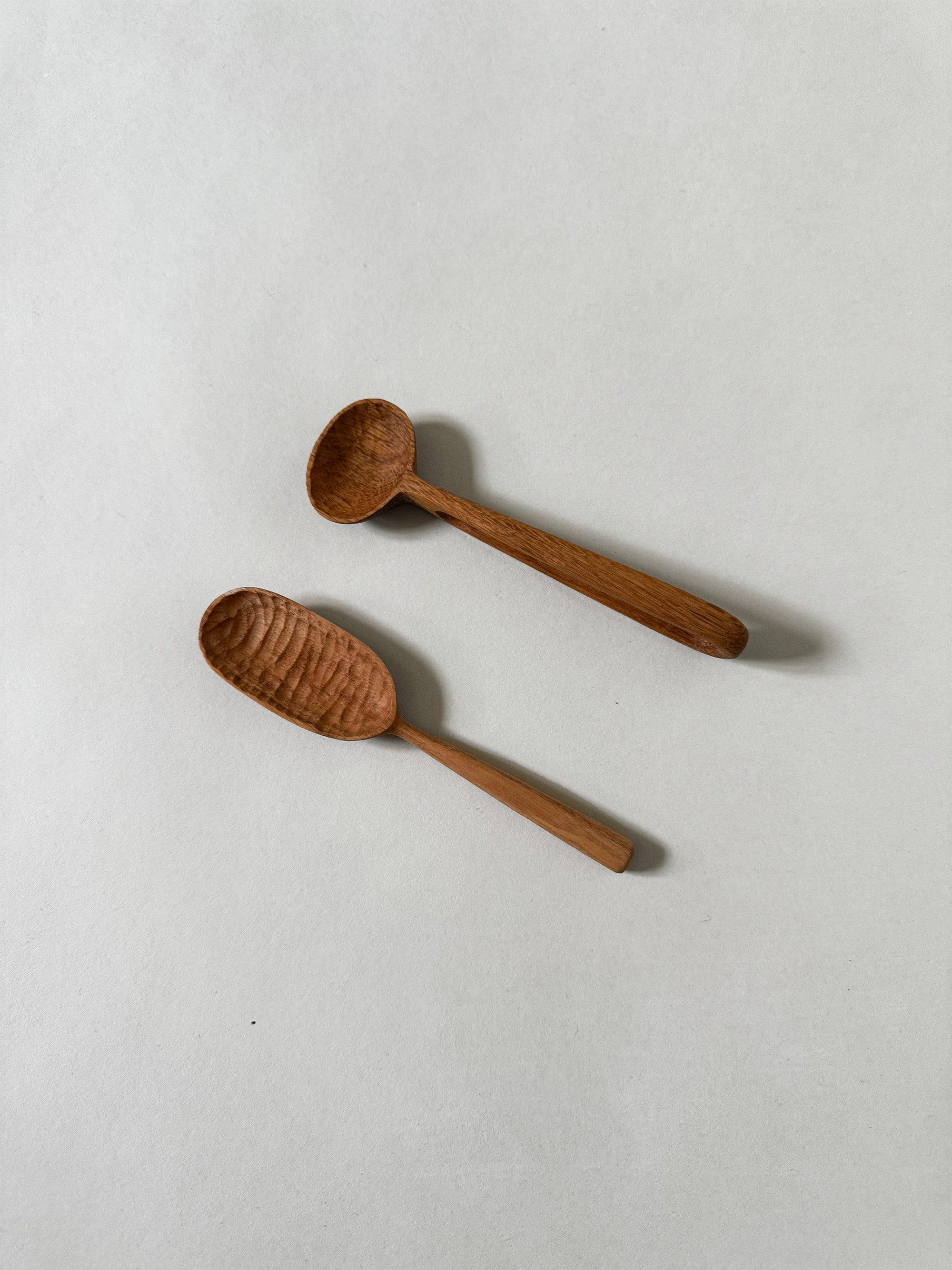
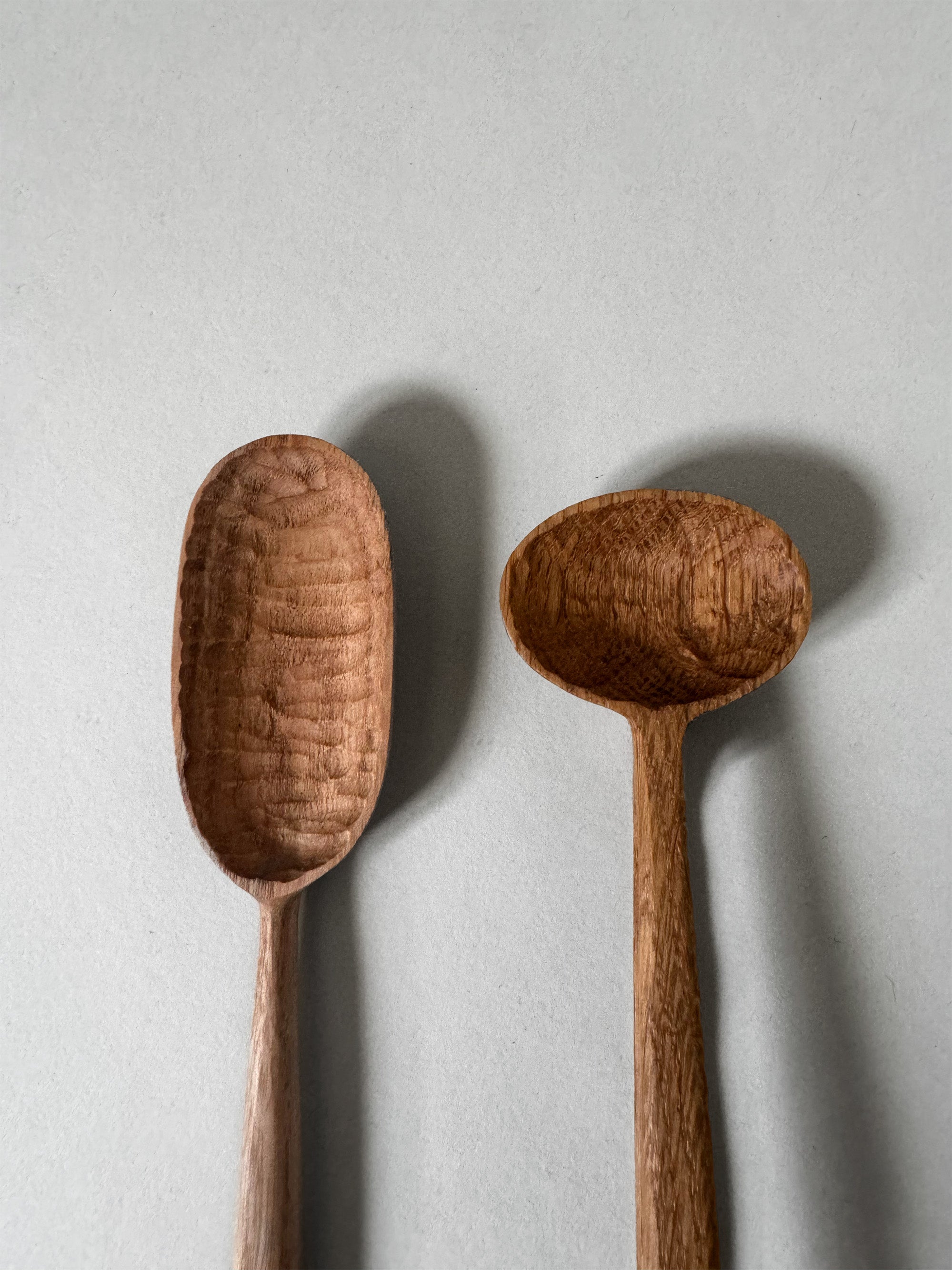
AMUSE-BOUCH SPOONS
Hand-carved from walnut wood, the Amuse-Bouch Spoons are designed and sculpted by artisan Léa Laborie in collaboration with Chef Justine Pruvot.
The two envisioned the spoons as providing ‘little pedestals’ for different sweet appetizers, hence the name. Of course, their function is flexible and no matter their use these beautiful wooden spoons are sure to be conversation starters.
Each set is sold with an accompanying recipe, created and imagined by Chef Justine Pruvot.
Set of two
Touillet is the brainchild of its Marseille-based founder and cheffe en liberté (freedom chef) Justine Pruvot. The project brings together different crafts and craftspeople to create objects for ‘the art of the table’. This vision of Pruvot’s is reflected in the name Touillet – intended to be a meeting point between French terroir and craftsmanship.
Touillet entered the world of tableware with its first collection, inspired by walks by the creek and improvised lunches between friends that characterise a particular moment: The Picnic. Each piece within the collection is inspired by the seasons and stems from an original recipe by Chef Justine Pruvot herself. Playing with this notion of pairing plates with dishes, the collection enters into a collaboration with a range of artisan potters that highlight Pruvot’s encounters with inspiring and inspired women.
“Just like the chef who adapts based upon what’s found in the market that day, or growing in the fields this season, Touillet adapts to the constraints of the artisanal crafts it utilises – and plays with them.” – Justine Pruvot
Lorem ipsum, or lipsum as it is sometimes known, is dummy text used in laying out print, graphic or web designs. The passage is attributed to an unknown typesetter in the 15th century who is thought to have scrambled parts of Cicero’s De Finibus Bonorum et Malorum for use in a type specimen book.
Lorem ipsum, or lipsum as it is sometimes known, is dummy text used in laying out print, graphic or web designs. The passage is attributed to an unknown typesetter in the 15th century who is thought to have scrambled parts of Cicero’s De Finibus Bonorum et Malorum for use in a type specimen book.
To care for your wooden spoons, we recommend gentle handwashing and immediate drying with a clean, dry towel. Apply natural oils regularly to ensure their longevity and maintain their condition. Do not put it in the dishwasher.





